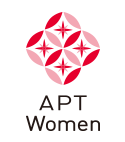Program Participants

SULCI Inc.Sekiya Satomi
Please tell us about SULCI's raffia bags made in the Philippines that support sustainable manufacturing.
SULCI Inc.'s slogan is: “Open up Filipino women's future with a crochet needle!” We provide technical instructions for hand-knitting bags with a local natural material called raffia (palm tree fiber) using crochet needles for Filipino women who cannot find a job even though they want to or are forced to settle for a low-paying job.
Sulfi's raffia bags—each one is made by hand with meticulous care—are sold at shops in resort hotels and galleries in the Philippines and at department stores and online shops in Japan.
Today, we have our atelier in a small town in Cebu, Philippines, where about 50 women produce bags with confidence and pride. Based on our fair trade policy, we support their lives by paying fair prices to them.


SULCI's bags are manufactured in a sustainable manner, using solely natural raffia strings produced in the Philippines, through our comprehensive production system from the procurement of raffia strings to the final finishing of the products. We also create jobs for people who manufacture strings from raffia leaves by buying raffia strings on a regular basis.
We also put efforts into a project that contributes to the local community. We provide technical training to female prisoners in a town where our atelier is located, so that they can work at SULCI after they get out of prison. They also make bags inside the prison. The payments are sent to the prisoners' children waiting home to cover their school supply expenses.
Tell us what made you start your own business.
After I quit my previous job, I went to Cebu as a vacation and saw folk art baskets sold at a souvenir shop. The prices were too cheap, which made me wonder how much is paid to the workers.
I thought I could create jobs and help the local women to win independence through providing technical training on the designing and knitting of stylish bags and create hand-knitted bags with them. I also thought that I could run my business while solving social issues if I paid a fair amount of fees to them and sold the finished products in Japan. That is why I decided to start my company.
Conventionally, raffia strings had been used only for weaving in the Philippines. SULCI was the first company that brought in hand-knitting techniques for raffia strings using crochet needles. I noticed the possibility that I could create a new work style if I could develop an environment and a system that allow women to start working from anywhere without investing in machines.
Tell us about the future developments.
Keeping in mind the distance from the production base for our bags in the
Philippines, we will expand our market with an eye to affluent people in the neighboring countries in
Asia. In addition, we will also participate in overseas trade shows and expand exports with an eye to
distribution in Europe and America.
As we are expecting an increased demand, we would like to scale up the business model from current home
production (atelier) to factory production (factory). Along with that, we also need to work on the
enhancement of the production system, capital investment, securing of human resources, and training of
producers.
In addition, SULCI aims to contribute to the achievement of the U.N. Sustainable Development Goals (SDGs). We would like to conduct our business and marketing activities while also solving the social challenges stated in the SDGs.
In the near future, we would like to collaborate with overseas high brands and distribute our bags made from raffia and leather all around the world. We hope to communicate the potential of Filipino women to the world through our manufacturing business.




